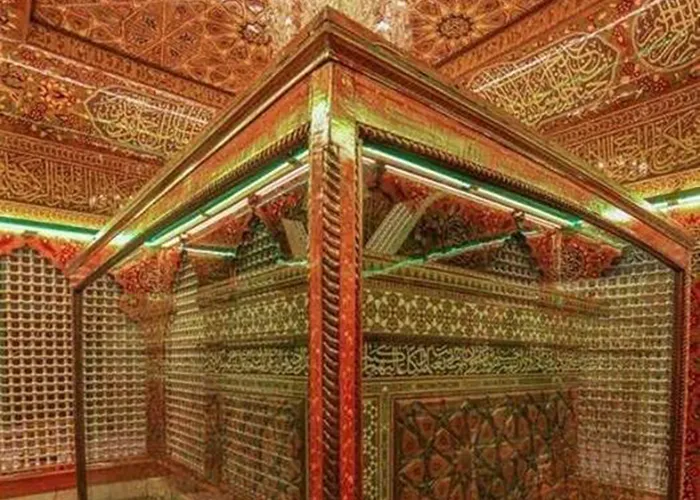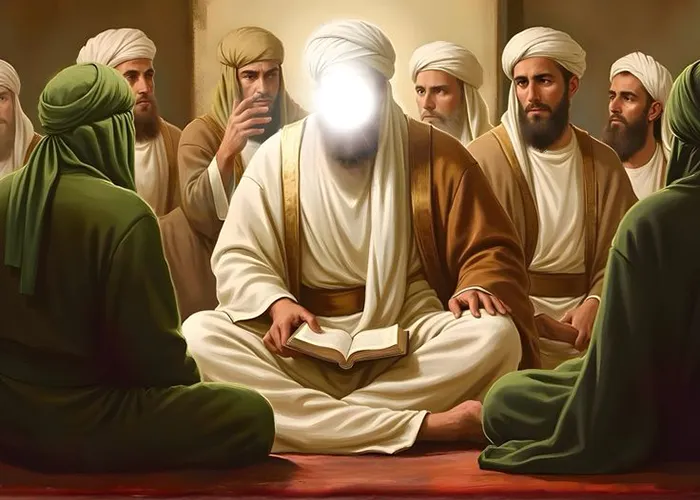Inspirational Tales – Volume02 Issue16
The Lantern of Najaf: A Tale of Ayatollah Bahr al-ʿUlūm (ra)
In the holy city of Najaf, under the golden dome of the Commander of the Faithful (peace be upon him), lived a scholar whose light continues to guide hearts centuries after his time. Sayyid Muḥammad Mehdi Bahr al-ʿUlūm (may Allah elevate his station), born in 1155 AH (1742 CE) and passing to the mercy of Allah in 1212 AH (1797–1798 CE), was not just a scholar of books but a scholar of souls.
His very title, Bahr al-ʿUlūm, meaning “Ocean of Knowledge”, was not given lightly. His knowledge was so vast, and his humility so deep, that even the angels of learning would gather at the doorstep of his sincerity. But what makes his story truly inspiring is not merely the depth of his scholarship, but the purity of his heart and the trust Allah (swt) placed upon him.
Sayyid Bahr al-ʿUlūm studied under some of the greatest scholars of his era in the renowned Hawza of Karbala, before becoming a pillar of the Hawza of Najaf. His life was devoted to preserving and spreading the knowledge of Ahlulbayt (peace be upon them), ensuring that the light of guidance continued to shine for generations to come.
It is narrated by reliable scholars that Sayyid Bahr al-ʿUlūm was blessed with the honour of seeing the Imam of our time, Imam al-Mahdi (may our souls be sacrificed for him), and even being in his service — but he never boasted of this closeness. He never sought fame or status from it. Instead, he poured his heart into the service of the people, especially the poor and the seekers of knowledge.
During an epidemic in Najaf, fear had paralysed the city. Markets were empty, and even the burial of the deceased had become neglected out of fear of contagion. Yet, Sayyid Bahr al-ʿUlūm, with his immense tawakkul (trust in Allah), led by example. He personally buried the dead, comforted grieving families, and reminded the community of Allah’s mercy that surpasses all hardships.
His bravery rekindled the spirit of the people, and slowly, the community regained its strength. In their darkest moments, he became their lamp of hope.
His approach to teaching was equally remarkable. When students asked him questions, he would not merely give them direct answers. Instead, he taught them how to think — how to anchor themselves in the Qur’an, how to draw wisdom from the lives of the Ahlulbayt (as), and most importantly, how to purify their hearts so they could understand divine knowledge deeply.
One day, a student humbly asked him:
“O Sayyid, what is the secret to such nearness to the Imam (aj)?”
With tears welling in his eyes, he replied:
“Serve the people for the sake of Allah, hide your deeds from the eyes of creation, and keep your heart yearning for the Imam. He is nearer to you than you realise.”
Sayyid Bahr al-ʿUlūm’s life is a shining example for us today — especially in these times, when our hearts long for the reappearance of our beloved Imam (aj). His story teaches us that preparing for the Imam is not about waiting passively, but living actively in service, sincerity, and knowledge. It is about becoming the kind of people who are worthy of joining the Imam’s army when he rises.
May Allah (swt) raise the ranks of this noble servant, and may we be inspired to walk in his footsteps, so that we too may be counted among the helpers of al-Ḥujjah (aj).
editor's pick
news via inbox
Subscribe to the newsletter.




